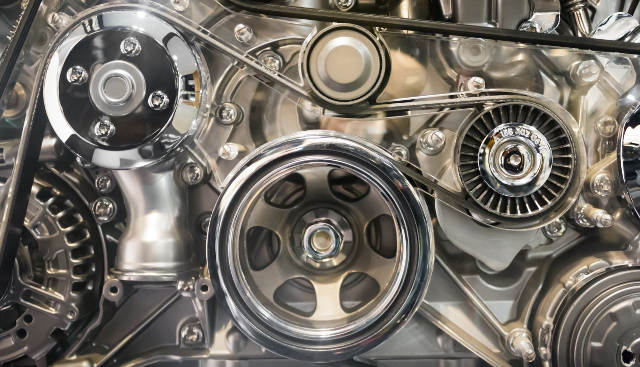A research team from Qatar University and North Carolina State University has collaborated to develop a new high-entropy metal alloy, which is characterized by a higher strength-to-weight ratio when compared to other nanocrystalline alloys.

The high-strength, low-density alloy could be used to save weight in vehicles. Image credit: Shutterstock/ILeysen
The density is comparable to aluminum, but it is stronger than titanium alloys. It has a combination of high strength and low density that is, as far as we can tell, unmatched by any other metallic material.
Dr. Carl Koch
High-entropy alloys include five or more metals in about equal quantities. These materials may have desirable properties and as such have attracted significant attention in the engineering and materials science fields.
The researchers developed the nanocrystalline high-entropy alloy by combining aluminum, lithium, titanium, scandium, and magnesium. The alloy formed a single-phase face-centred cubic structure during ball milling and then changed to single-phase hexagonal close packed structure after annealing.
This resulted in a new alloy that has a very low density, yet high strength and hardness. Such strong yet lightweight materials can be used in a variety of applications such as prosthetic devices and vehicles.
The main drawback of this alloy is that it contains 20% scandium, which makes it very costly. The researchers are working to find out if this can be reduced or replaced with another metal, to make the material more economically viable in bulk applications.
Dr. Carl Koch, Kobe Steel Distinguished Professor of Materials Science and Engineering at NC State and senior author of a paper on the work, commented:
"The strength-to-weight ratio is comparable to some ceramics, but we think it’s tougher – less brittle – than ceramics. We still have a lot of research to do to fully characterize this material and explore the best processing methods for it."
The study “A Novel Low Density, High Hardness, High-Entropy Alloy with Close-packed Single-phase Nanocrystalline Structures", is available online in the open-access journal, Materials Research Letters, and was supported partly by the National Science Foundation. The lead author of the paper is Dr. Khaled Youssef of Qatar University.
Co-authors include Changning Niu, and Alexander Zaddach, Ph.D. students at NC State; and Douglas Irving, an associate professor of material science and engineering at NC State.
Sources